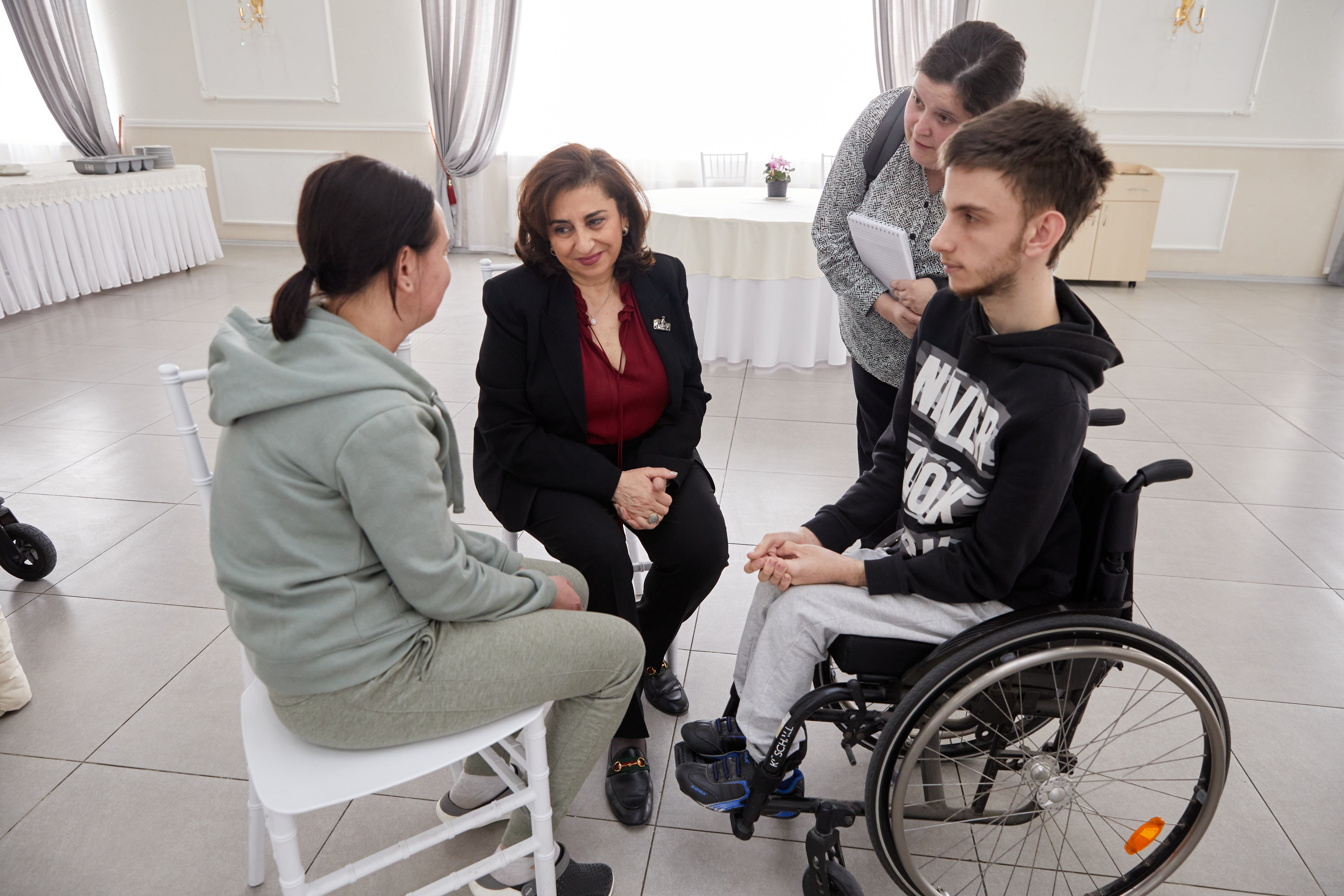Meet Yaroslav, a young Ukrainian refugee with disabilities who dreams of becoming a DJ
Date:

Yaroslav’s mother explains that, once the war started, her son had to interrupt his studies, which left him more isolated: “He misses his room, our home and familiar surroundings where he feels safe. Our home was fully adapted to his needs, and this made him much more independent and self-confident.”
Yaroslav has speech and certain motor-coordination difficulties that hinder his integration in his new community. At the same time, other refugees, as well as his hosts from Costesti fell in love with him. They appreciate his sharp sense of humour and his concern for others when he posts jokes, news and his own views about the situation on social media groups created for refugees.
Marina, another refugee in Costești, says: “He is an extraordinary boy. He has potential and is very talented. He is always careful to inform us of any changes in the programme at our centre. I know he is passionate about music, and I am sorry he is not able to practice now.”
“I am so sorry my son had to drop his studies because of the war. At the same time, [the equipment he has received allows him to download necessary programmes and develop his DJ skills; it will also] help him continue his activities and communicate easier with his friends and classmates. I really hope we will come back home one day,” Yaroslav’s father shared.
When UN Women Executive Director Sima Bahous met Yaroslav during a recent visit to Moldova, she asked him about his interests and dreams and he was determined to practice DJing again, and to return home one day.
Yaroslav, together with other refugees enjoyed a theatre performance organized by UN Women in partnership with Moldovan Border Police, tasting Easter cakes and sweets offered during the Easter holidays for 250 children from Ukraine.
The Costesti temporary placement centre hosts more than 100 refugee families, the majority of whom are comprised of women with small children. UN Women, together with the Women’s Law Center, donated chairs for the refugee children from Costesti, so that mothers could eat lunch together with them.
According to the displacement survey on Ukrainian refugees, jointly produced by the International Organization for Migration (IOM) and UN Women, about 23 per cent of respondents in transit locations reported having a serious health condition (chronic disease, disability, wounded) or to be travelling with someone who did. Among those met in centres and private accommodation, 22 per cent reported to have, or to be accompanied by at least one person with, a disability.